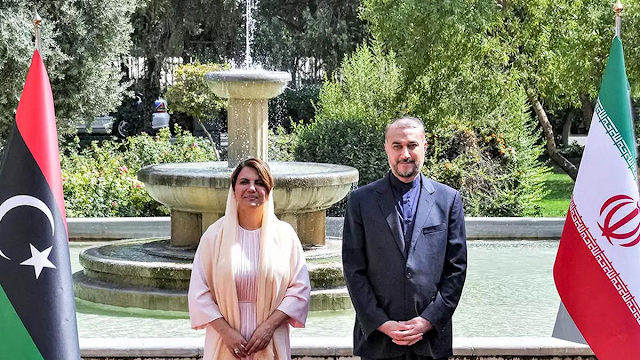Libyan Foreign Minister Suspended Over Talks with Israeli Counterpart
Tensions have escalated within Libya's political landscape as the country's Foreign Minister finds himself suspended from his position due to his engagement in talks with his Israeli counterpart. This unexpected diplomatic interaction has raised eyebrows and underscores the complexity of diplomatic relations in the region.
The suspension of the Libyan Foreign Minister comes as a response to a series of talks he held with the Israeli Foreign Minister, a move that has been met with criticism and internal political turmoil. Libya, like many other Arab countries, has historically taken a strong stance against engaging in official diplomatic relations with Israel due to ongoing conflicts in the Middle East.
The discussions between the Libyan and Israeli officials have stirred controversy domestically, prompting a debate over the appropriateness of the Foreign Minister's actions. Critics argue that these talks may undermine longstanding pan-Arab solidarity against Israel's policies in the region and could potentially complicate Libya's relationships with other Arab nations.
The suspension of the Libyan Foreign Minister reflects the internal divisions within the country's political landscape. Libya has been grappling with instability and a power struggle since the fall of the Gaddafi regime in 2011. Various factions and militias vying for control have made it challenging to form a unified stance on international matters.
Externally, the talks between Libyan and Israeli officials have broader implications. While some view these discussions as a potential step toward recognizing Israel and normalizing relations, others fear that it could be perceived as betrayal by countries and groups that have traditionally supported the Palestinian cause.
The suspension of the Foreign Minister highlights the delicate balance that Libyan leadership must strike between pursuing diplomatic relations and upholding historical allegiances. Supporters of the suspended Foreign Minister argue that engaging in dialogue can pave the way for diplomatic solutions and regional stability. However, opponents believe that these talks might compromise the country's commitment to the Palestinian cause and its alignment with other Arab nations.
The incident also underscores the challenges of diplomacy in the Middle East, where historical conflicts and geopolitical rivalries often intersect with domestic politics. Libya's internal political dynamics are tightly linked to its international interactions, making decisions regarding foreign relations a complex matter.
The suspension of Libya's Foreign Minister over talks with his Israeli counterpart highlights the intricate web of politics, history, and diplomacy in the Middle East. The incident has prompted discussions about the balance between pursuing diplomatic engagement and honoring historical alliances. As Libya navigates these complex waters, the outcome will not only impact its internal politics but also have broader implications for regional stability and international relations.

.png)
Comments
Post a Comment